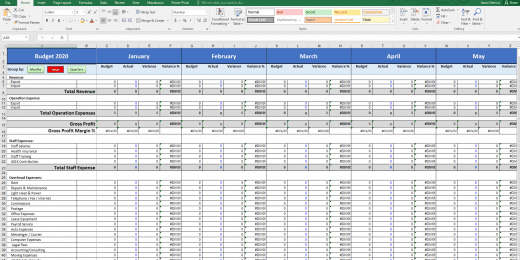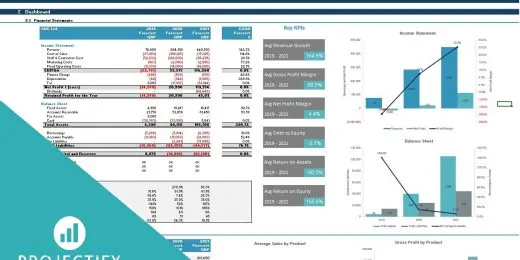Revolutionize Your Approach to Financial Terms 101

Transform your financial literacy with our essential guide to key monetary terms. Master your finances by understanding the industry’s jargon.
Navigating the realm of finance often requires a solid grasp of its complex terminology. With our Financial Terms 101, streamline your journey through the maze of economic language. This guide demystifies the intricate concepts and vocabularies that can be barriers to your monetary success, ensuring you’re equipped to make informed decisions.
By breaking down the essentials into digestible information, you’ll unlock the confidence to engage with financial discussions and transactions. Perfect for beginners and those looking to refresh their knowledge, this resource is key to empowering your financial decision-making. Embrace this learning tool and lay the groundwork for enhanced financial communication and strategy.
Demystifying Financial Jargon
Are complex financial terms making your head spin? Fear not! Dive into the world of finance with ease as we break down the intimidating lingo. Say goodbye to confusion and hello to clarity with our simple guide.
Breaking Down Complex Terms
Understanding finances can feel like learning a new language. We’re here to translate. With clear explanations, you’ll conquer terms like ‘amortization’ or ‘liquidity’ in no time. Embrace knowledge and make informed decisions.
- Amortization: This is how you pay off a debt over time.
- Liquidity: This means how quickly you can turn assets into cash.
- Equity: Think of it as ownership. In a house or company, it’s the value that’s yours.
Importance Of Financial Literacy
Financial literacy is your superpower in the world of money. It helps you budget, save, and invest. Mastering it means better choices and a brighter future. Start with basics and build your way up to a savvy financial mindset.
- Set clear money goals.
- Create a budget to track expenses.
- Understand saving for emergencies and the future.
Start small, think big, and watch your financial confidence soar!
Mapping Out Key Financial Concepts
Welcome to Mapping Out Key Financial Concepts—your essential roadmap in the world of finance. Whether you’re a budding entrepreneur, an eager student, or simply looking to get a firm grip on your finances, understanding these concepts is crucial. Let’s break down the basics of finance into simple, digestible pieces and explore the building blocks of any sound financial strategy.
Assets
Assets are valuable items you own. They can put money in your pocket. Think of assets like tools in a toolbox. Each one can help you build wealth over time.
| Type | Examples |
|---|---|
| Current Assets | Cash, Stocks |
| Fixed Assets | Property, Machinery |
Liabilities
Liabilities are what you owe. They are like weights that can slow down your financial progress. Liabilities need careful management to keep your financial ship sailing smoothly.
- Mortgages
- Car loans
- Credit card debts
Equity
Equity is your ownership stake. It is what’s left when liabilities are subtracted from assets. In a company, equity belongs to the shareholders. It is like a financial scorecard showing your real wealth.
Revenue, Expenses, And Profit
Revenue is the total income, often from sales or services. It’s the starting line for financial success.
Expenses are the costs of doing business, like rent and supplies. Keeping expenses lower than revenue means you are on track.
Profit is the money left over after paying expenses. It’s the goal in the game of business.
- Track your revenue
- Minimize expenses
- Maximize profit
The Backbone Of Personal Finance
Mastering personal finance is key to a secure future. It begins with understanding the essentials that make up its backbone. By breaking down complex financial terms into simple concepts, you can take control of your money. Let’s delve into the core pillars of personal finance: budgeting, saving, credit, and loans. These elements, when managed wisely, can lead to financial freedom and stability.
Budgeting And Saving
- Creating a budget means knowing your income and expenses.
- Track spending to see where money goes.
- Setting aside savings helps prepare for emergencies or future goals.
- Use budgeting apps to simplify the process.
Employing a budget is the first step to financial success. An effective budget highlights areas for cost-cutting. It ensures you always have funds for the unexpected. Let’s look at a simple monthly budget table:
| Income Source | Amount |
|---|---|
| Salary | $3,000 |
| Freelance | $500 |
| Total Income | $3,500 |
| Expense | Amount |
| Rent/Mortgage | $1,000 |
| Groceries | $300 |
| Utilities | $250 |
| Total Expenses | $1,550 |
| Savings | $1,950 |
With this budget blueprint, you can pinpoint how to distribute your income efficiently. Aim to save a portion of your monthly income.
Understanding Credit And Loans
- Good credit scores unlock better loan terms.
- Paying bills on time boosts your credit score.
- Read loan agreements carefully to avoid future issues.
- Compare interest rates before getting a loan.
Strong credit scores reflect your financial health. They show lenders that you are trustworthy. A good score can lead to lower interest rates on loans saving you money. Know the difference between various types of loans: personal, student, auto, and mortgage. Each has its own terms, conditions, and rates. Understanding these will help you choose the right loan that aligns with your needs and repayment capabilities.
Remember, knowledge is power—especially with finances. Equip yourself with these fundamentals to forge a path to prosperity.
Investing Basics Unveiled
Investing Basics Unveiled: Master the core concepts of investing. Grasp key financial tools to grow wealth. Diving into stocks, bonds, and mutual funds sets the stage for a successful investment journey.
Stocks
Stocks represent a slice of a company. Buy stocks to own a piece of a business. When companies do well, stock values grow. This can mean more money for investors.
- Shares: Units of stock. One share equals one unit of ownership.
- Dividends: Profits paid to shareholders. Not all stocks offer dividends.
- Stock Exchanges: Places where stocks are bought and sold, like the NYSE.
Bonds
Bonds are loans investors give to entities. Think of them as IOUs. Governments or corporations borrow money and pay it back with interest. Bonds can offer steadier income than stocks.
| Type | Issuer | Risk Level |
|---|---|---|
| Corporate | Companies | Higher |
| Municipal | Local Governments | Medium |
| Treasury | Federal Government | Lower |
Mutual Funds
Mutual funds pool money from many investors. Professionals manage the funds. They invest in a mix of stocks, bonds, or other assets. Mutual funds offer instant diversification.
- Choose funds based on goals and risk tolerance.
- Check fund performance history.
- Consider fees and fund management.
Risk Management And Diversification
Risk management is vital. Spread money across different investments. This is diversification. Diversification reduces risk. It is key to a solid investment strategy.
Asset Allocation: Mix of stocks, bonds, and other assets.
- Blue-chip stocks vs. high-growth stocks
- Government vs. corporate bonds
- Domestic vs. international investments
The World Of Taxes
Welcome to The World of Taxes, a realm where numbers dance and every penny counts. This financial space can seem labyrinthine, but fear not! Understanding taxes is a powerful skill that can save you money and keep you compliant. Let’s unravel the complexities of the tax system and make it work in your favor.
Income Tax Essentials
Income tax is a staple in most people’s financial life. It’s a tax on what you earn, both from your job and other sources. Some key points include:
- Gross Income: Your total earnings before any deductions.
- Net Income: What you take home after taxes and deductions.
- Tax Brackets: These determine the rate at which your income is taxed.
To calculate your taxes:
- Start with your gross income.
- Subtract any deductions or exemptions you qualify for.
- Find your tax bracket to see your tax rate.
- Apply this rate to get your tax liability.
Stay on top of relevant deductions and credits to minimize what you owe.
Tax-advantaged Investment Strategies
Smart investments can reduce your tax bill. Use these strategies:
| Strategy | Benefit |
|---|---|
| Retirement Accounts | Tax deductions on contributions |
| Health Savings Accounts | Pre-tax contributions and tax-free withdrawals |
| Education Savings Accounts | Tax-free growth for educational expenses |
Consider these tools:
- 401(k) & IRA: Set aside money for retirement before taxes.
- 529 Plans: Save for education with tax-free growth.
- HSAs: Cover medical expenses with pre-tax dollars.
Review your portfolio with a tax perspective. Aim for long-term growth and tax efficiency.
Navigating Through Insurance Terms
Understanding insurance can be like learning a new language. Important terms and concepts tend to overwhelm. Let’s simplify and demystify the world of insurance together.
Types Of Insurance Policies
Different insurance policies protect against various risks. Some provide health coverage, others secure property. Here’s a quick look at the main types:
- Health Insurance – Covers medical expenses.
- Life Insurance – Pays upon the policyholder’s death.
- Auto Insurance – For car-related damages or injuries.
- Homeowners Insurance – Protects your home and belongings.
Evaluating Coverage And Premiums
Selecting the right insurance demands a balance between coverage and premiums. Coverage refers to the protection you get. Premiums are the price you pay.
| Insurance Type | What It Covers | Average Premium |
|---|---|---|
| Health Insurance | Medical bills, hospital stays | $400/month |
| Life Insurance | Financial support for family | $30/month |
| Auto Insurance | Vehicle repair, injury treatment | $80/month |
| Homeowners Insurance | Home repairs, theft losses | $100/month |
Analyze what you need and can afford. Choose wisely to ensure your peace of mind.
Retirement Planning Simplified
Understanding retirement planning is like learning a new language. It might seem difficult at first. But with the right guide, it becomes much easier. Let’s untangle the complexities of retirement accounts and strategies for growing your nest egg.
Introduction To Retirement Accounts
Retirement accounts are savings plans. They help you store money for your future. The government usually gives tax benefits to encourage saving. There are many types of accounts. Let’s look at a few popular ones:
- 401(k): This is a plan from your job. You save a part of your paycheck. Sometimes your employer adds money too.
- IRA: Individual Retirement Account. You open it yourself. There are two kinds, Roth and Traditional.
- Roth IRA: You pay taxes on money now. You don’t pay later when you take it out.
- Traditional IRA: You don’t pay taxes now. You pay later when you take the money out.
Strategies For Building A Retirement Fund
Starting early is key. The sooner you begin, the more time your money has to grow. Here are simple steps to grow your retirement fund:
- Make a Plan: Decide how much money you will need. Set goals for saving.
- Save Regularly: Even small amounts add up. Try to save with every paycheck.
- Invest Wisely: Learn about stocks, bonds, and mutual funds. Pick the best ones for you.
- Get Help: Talk to a financial advisor. They can give personalized advice.
- Stay Patient: Building wealth takes time. Stick to your plan. Adjust as needed.
Adopting A Millionaire Mindset
Embark on a transformative journey. Grasp the essence of financial literacy and freedom. Embrace the millionaire mindset. This mindset isn’t just about hoarding wealth. It’s a strategic approach to managing finances and generating wealth.
Principles Of Wealth Building
Building wealth is not exclusive to a select few. It follows clear principles:
- Pay yourself first- Allocate a portion of your income to savings.
- Invest wisely- Put your money in assets that grow over time.
- Diversify- Spread your investments to minimize risks.
- Delay gratification- Resist unnecessary expenses now for future benefits.
- Financial education- Continuously learn about money management.
Common Traits Of Financially Successful Individuals
Those with a millionaire mindset share some key traits:
| Trait | Description |
|---|---|
| Discipline | They stick to their financial plans. |
| Patience | They understand wealth builds over time. |
| Resilience | They stay firm despite setbacks. |
| Curiosity | They seek new knowledge and opportunities. |
| Risk-taking | They are not afraid to take calculated risks. |
Tools For Financial Mastery
The journey to financial mastery begins with the right set of tools. Just as a carpenter needs a hammer and saw, modern finance requires specific instruments to help you navigate and understand the ever-changing financial terrain. Mastering your finances becomes simpler with software and apps designed to track, manage, and plan your monetary journey. Let’s dive into some essential tools that can help you gain financial proficiency.
Utilizing Financial Software
Financial software stands as a cornerstone for effective financial management. Programs like Quicken, Mint, and YNAB (You Need A Budget) offer robust features:
- Budgeting: Set specific financial goals and monitor your spending.
- Investment Tracking: Keep an eye on your investments’ performance.
- Debt Management: Develop a plan to pay off debts sooner.
- Reporting: Generate comprehensive reports to analyze your financial health.
Using software can automate tasks like transactions categorization, helping you make informed decisions quickly.
Mobile Apps For Managing Money On The Go
In today’s mobile world, managing money should not tether you to a desktop. With mobile apps like Robinhood, Acorns, and Chime, you can:
- Invest in stocks with just a few taps.
- Save spare change through automatic round-ups on purchases.
- Receive real-time alerts for transactions and low balances.
These apps offer simplified engagement with your finances, making it convenient to check on your economic wellbeing anytime, anywhere.
Staying Updated With Financial Trends
Embrace the power of staying informed on financial trends with our Financial Terms 101 guide. Transform your fiscal savvy by mastering the essentials of economic movements and strategies.
In the ever-evolving world of finance, staying ahead means knowing the pulse of the market.
Adapt to changes and make informed decisions. The financial landscape shifts with economic indicators and global events. It’s crucial to keep a finger on the financial world’s pulse.
Follow the waves to ride trends and avoid being swept away by the tides of change.
Keeping Up With Economic Indicators
Economic indicators are the compass for navigating the financial seas. They signal the health of the economy. Track these metrics regularly:
- GDP Growth Rate: Indicates economic expansion or contraction.
- Inflation Rate: Shows price level changes over time.
- Employment Figures: Reflects labor market strength.
Use these indicators to gauge potential impacts on investments and savings. A proactive approach to these metrics ensures readiness for change.
Influence Of Global Events On Finances
Global events can cause ripples or tidal waves in financial markets. Understand the impact of:
- Political Shifts: Elections and policy changes shape fiscal landscapes.
- Trade Agreements: They alter import and export dynamics.
- Disasters and Conflicts: Natural or man-made, they disrupt economies.
Tracking news and analyses aids in predicting these events’ effects. This knowledge is vital for safeguarding assets.
Developing A Financial Game Plan
Ready to take charge of your finances? Successful money management starts with a solid strategy. Think of it like a blueprint for building your financial future. We’ll break down how to set goals and craft an investment plan that grows with you.
Setting Realistic Financial Goals
Start by defining what you want to achieve with your hard-earned money. Be specific with the targets. “Save more” becomes “save $5,000 in a year”. Unequivocal goals lead to clear pathways.
- Identify short and long-term objectives: Whether it’s an emergency fund or a dream vacation, know your timeline.
- Prioritize your goals: Decide what’s most important and tackle that first.
- Break bigger goals into smaller steps: Saving for a home? Start with the down payment.
Creating A Long-term Investment Strategy
An investment strategy is your financial compass. It should mirror your life’s timeline – adaptable and forward-focused. Start early, stay consistent, and keep an eye on the horizon.
| Age | Risk Tolerance | Investment Focus |
|---|---|---|
| 20s-30s | Higher | Growth Stocks, Index Funds |
| 40s-50s | Moderate | Diversified Portfolio |
| 60s+ | Lower | Bonds, Dividend Stocks |
Keep these steps in mind:
- Assess your risk tolerance: Your investments should not keep you up at night.
- Diversify your portfolio: Spread your investments to manage risk better.
- Review and adjust regularly: Life changes, and so should your investment strategy.
Embracing Technological Advancements
The financial world is evolving fast. New tools and technologies are changing how we manage money. Let’s dive in and see how these innovations can make a big difference in personal finance and financial operations.
Impact Of Fintech On Personal Finance
Fintech, or financial technology, brings new ways to handle money. It means easy and fast services, right on your phone or computer.
- Instant payments and transfers
- Budget and savings apps
- Personal finance management
Plus, fintech makes learning about money fun. It helps people make smarter choices with interactive tools and games.
Benefits Of Blockchain In Financial Operations
Blockchain is a smart record-keeping technology. It is behind cryptocurrencies like Bitcoin. But it does much more. It makes financial operations:
| Secure | Transparent | Efficient |
|---|---|---|
| Hard to hack | See all transactions | Quick processing |
This means safer and faster ways to handle money. Businesses and consumers both win. With blockchain, everyone knows the details and can trust where their money goes.
Frequently Asked Questions
What Are Key Financial Terms For Beginners?
Financial terms crucial for beginners include assets, liabilities, equity, income, expenses, and investments. Understanding these foundations equips individuals to manage finances effectively and make informed decisions, contributing to financial literacy and stability.
How Do Interest Rates Affect Personal Finance?
Interest rates greatly influence personal finance. They dictate the cost of borrowing money and the returns on savings accounts and investments. When rates are high, loans become more expensive but savings potentially yield more, affecting budgeting and long-term financial planning.
Why Is Budgeting Important In Financial Planning?
Budgeting is essential as it helps track income and expenses, ensuring you live within your means. It aids in planning for short-term expenses and long-term financial goals, preventing debt accumulation and fostering a sense of financial security and discipline.
What Is The Difference Between Stocks And Bonds?
Stocks signify ownership in a company, offering potential dividends and price appreciation, whereas bonds are loans to corporations or governments, providing regular interest payments. Both carry risks and opportunities, diversifying investment portfolios and impacting personal wealth strategies differently.
Conclusion
Embracing the essence of financial terminology can unlock doors to savvy money management. Mastering these concepts equips you with a solid foundation for sound financial decisions. Keep learning, stay curious, and let your financial literacy grow. Remember, your journey to economic mastery begins with the basics—revisit Financial Terms 101 regularly for continued success.



















































